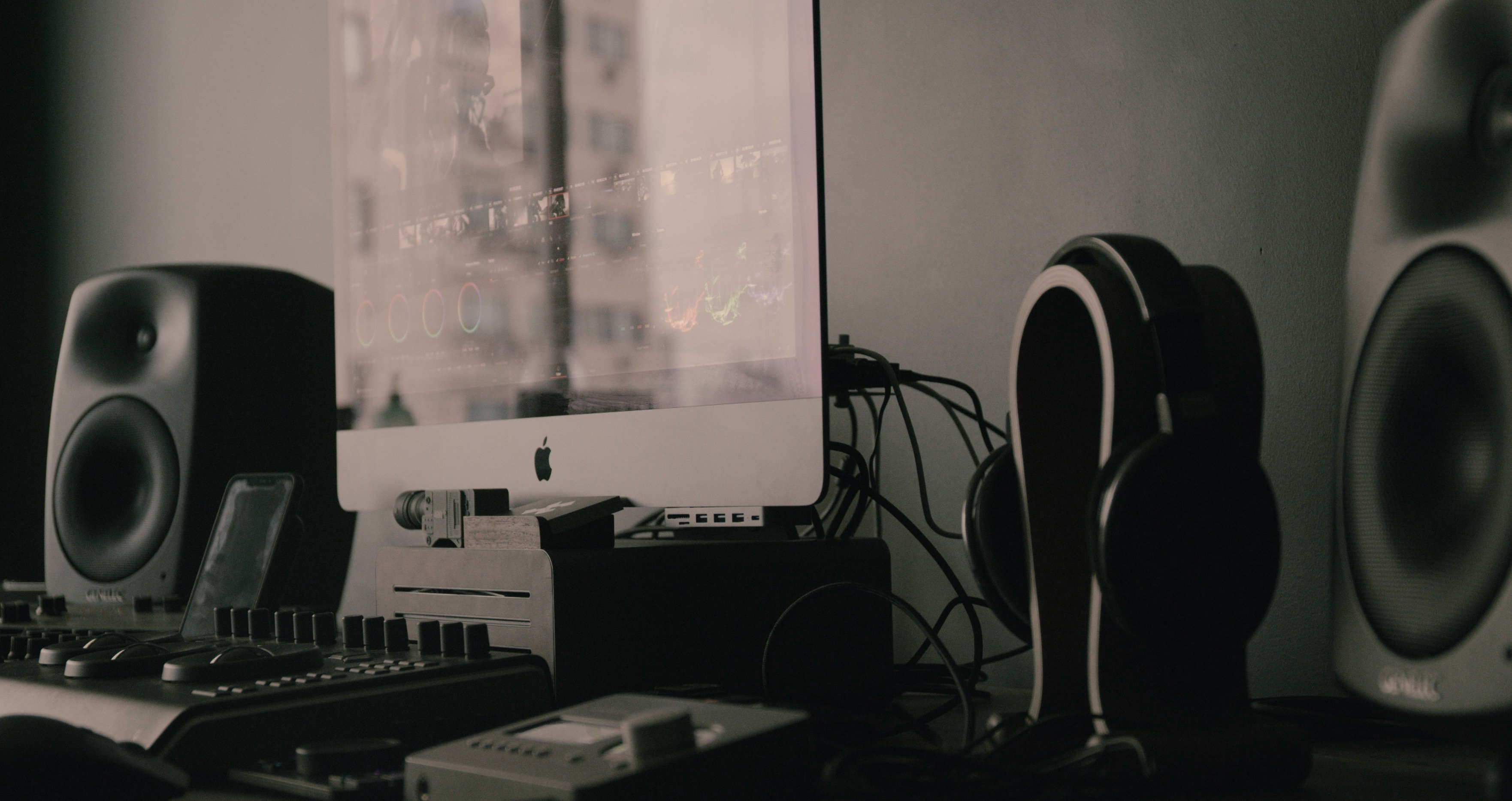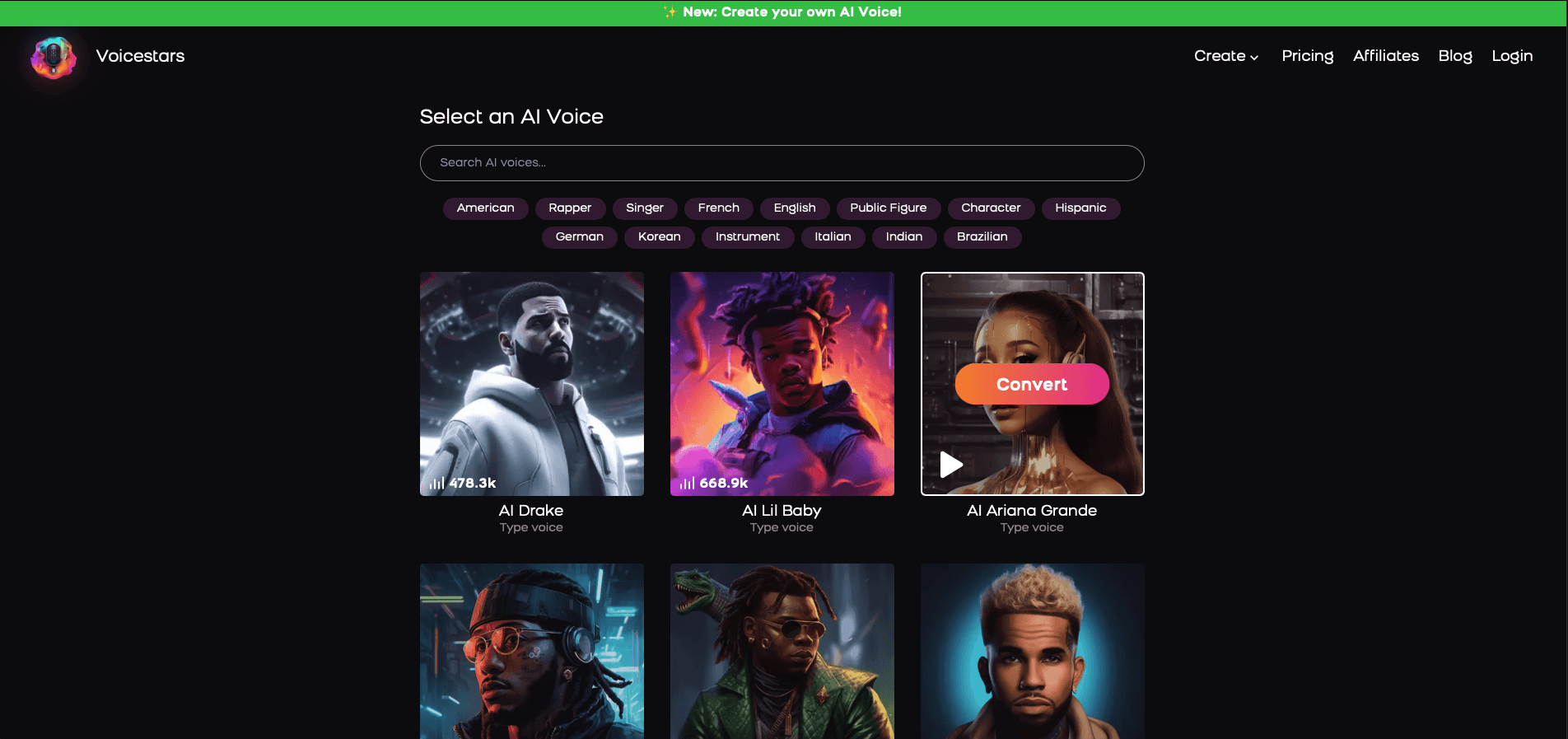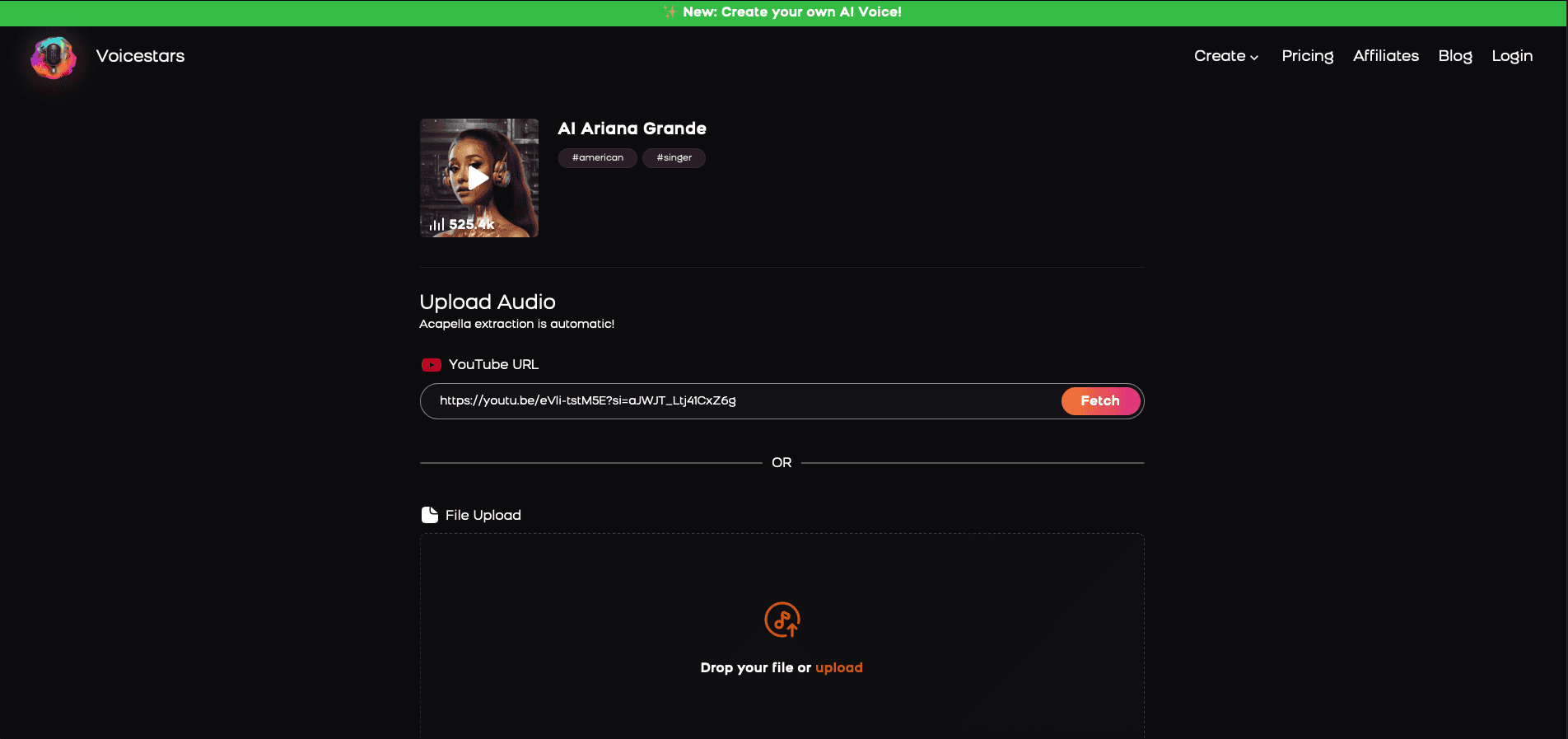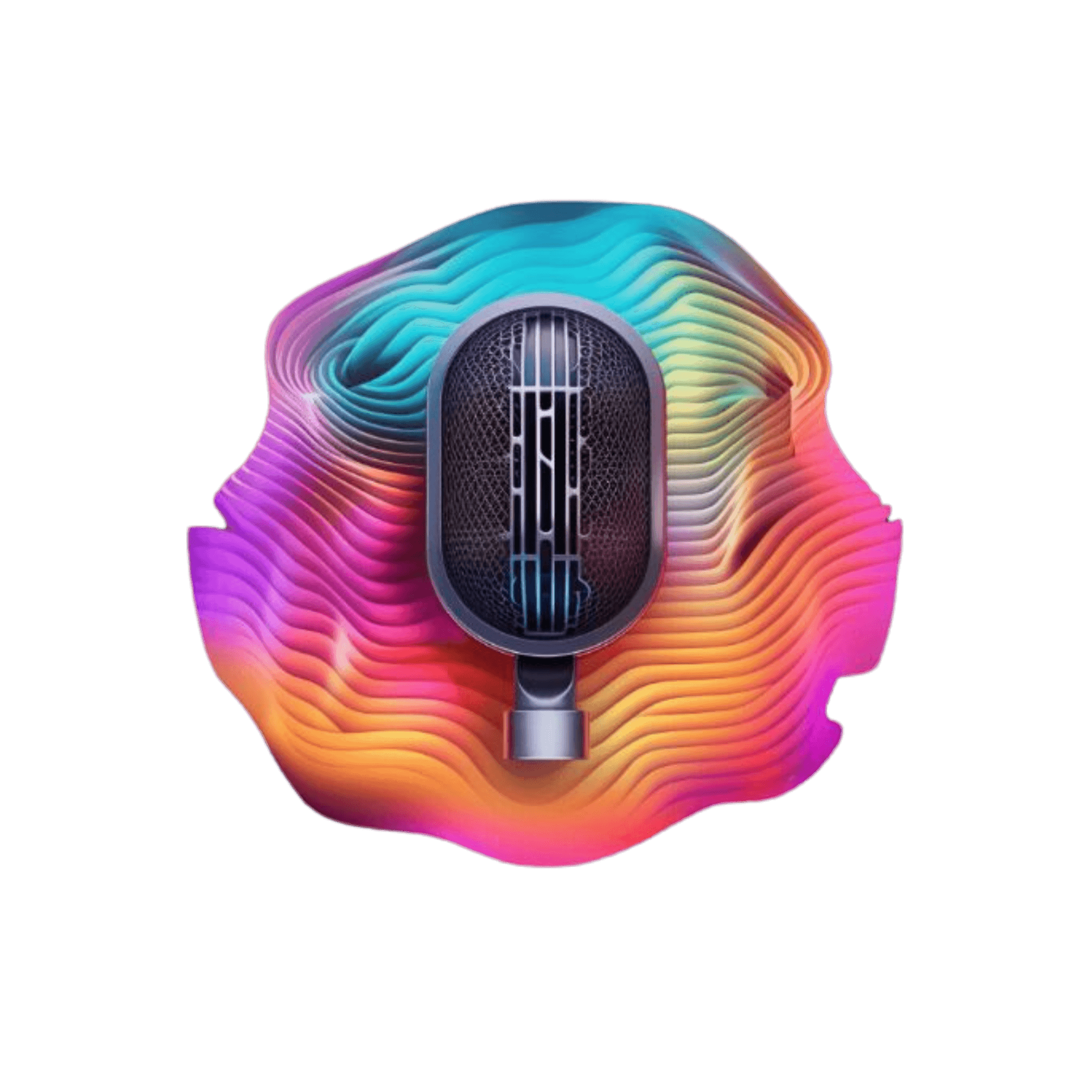
FROM OUR BLOG
FROM OUR BLOG
FROM OUR BLOG
How Yapay Zeka Seslendirme Is Changing Music Creation in Turkey
Apr 18, 2025



Table of Contents
What Does “Yapay Zeka Seslendirme” Mean?
How AI Voice Synthesis Is Used in Turkish Music
Tools That Offer Yapay Zeka Seslendirme Features
Why Voicestars Is the Top Choice for Turkish Creators
Step-by-Step Guide on How to Use Our AI Voice Cloning App
Creating Turkish Song Covers with AI Voices
How AI Voices Are Impacting Songwriting in 2025
What Does “Yapay Zeka Seslendirme” Mean?
Yapay zeka seslendirme means “artificial intelligence voiceover” in Turkish. It refers to AI-generated speech and singing, created using voice cloning or text-to-speech tools. Originally used for business narration and YouTube content, it has rapidly expanded into music production and songwriting.
In Turkey, this term has become increasingly popular as artists experiment with AI-generated vocals for covers, remixes, and new song demos. These tools allow creators to write lyrics and generate vocals without needing a studio setup or even a singer.
At the front of this innovation is Voicestars, which supports international languages, phonetic accuracy, and even Turkish voice stylization.

How AI Voice Synthesis Is Used in Turkish Music
From lo-fi Turkish beats to Anatolian rock fusions, Turkish creators are now using AI voice synthesis to speed up songwriting and add new vocal textures to their tracks.
Common uses include:
Creating AI covers of Turkish classics using celebrity voices like Drake or Beyoncé
Generating demo vocals for new lyrics in Turkish
Translating English songs into Turkish with AI vocals
Building fictional artists or meme tracks using yapay zeka voices
Voicestars makes all this possible with its powerful AI voice engine, available globally and adaptable to Turkish-language nuances.

Tools That Offer Yapay Zeka Seslendirme Features
A few platforms are used for Turkish AI voice synthesis:
Voicestars: Best for high-quality music voice cloning, covers, and multi-language support
Fakeyou: Offers Turkish voices but lacks musical accuracy
Play.ht: Great for narration, but not built for singing
Murf AI: Used more for presentations
TTSMP3.com: Basic Turkish TTS features for robotic-style voiceovers
But none match the quality, flexibility, and musical expression Voicestars brings to Turkish songwriters and producers.

Why Voicestars Is the Top Choice for Turkish Creators
Unlike general voice tools, Voicestars is built for music—and its support for Turkish phonetics makes it the best option for yapay zeka seslendirme in songwriting and AI vocals.
Here’s why:
Turkish-friendly phoneme synthesis (handles soft “ş”, “ğ”, and other local sounds)
1000+ celebrity voices that can be tuned to Turkish language structure
Realistic breath control, vibrato, and pitch automation for singing
Easy access to try AI voice generation directly: Start Here
Full vocal catalog: Explore Voices
Creators across Istanbul, Ankara, and beyond are using Voicestars to write, test, and publish songs without ever booking a vocal session.

Step-by-Step Guide: Create your favourite Ai voice with Voicestars AI
Video Guide
Written Guide
1. Visit the Voicestars Homepage
Go to Voicestars and click “Try now.”

2. Select Your AI Voice or Track
Choose from Bollywood stars, regional accents, or fictional voices.

3. Upload a Song or Add Text for Remixing
Insert an audio clip or type song lyrics for a quick remix.

4. Download and Share Your VoiceTips for Making the Most of AI Voice Covers

Remixing Turkish Folk, Pop & Rap with AI Voices
Turkish music has always thrived on emotion and storytelling—whether it’s Arabesque ballads, Anatolian rock, or Istanbul trap. Now, artists are using yapay zeka seslendirme to remix and reimagine these genres.
Some popular trends include:
Using SZA or Rihanna voices for melancholic Turkish pop covers
Turning Juice WRLD's voice into a slow Anatolian drill vocal
Making Ed Sheeran sing a Turkish lullaby
Fusing Turkish folk melodies with trap vocals from Drake or Lil Baby
And thanks to Voicestars’ adaptive voice engine, Turkish syllables and flow feel authentic—not robotic or off-key.

How Turkish Creators Are Using AI Voices in Songwriting
For songwriters, yapay zeka seslendirme is like having a virtual vocalist on standby 24/7. No scheduling. No mic. No studio time.
Writers are now:
Testing hooks in both Turkish and English
Pitching AI demos to producers with high-quality vocal layers
Using Voicestars to simulate duets with artists like Billie Eilish or The Weeknd
Crafting entire songs in Turkish, then using AI voices to audition them with different styles
For bilingual creators, this also means blending Turkish lyrics with English or Spanish melodies, supported by Voicestars AI voice selection, which is equipped for multi-language vocal synthesis.

The Legal & Cultural Considerations in Turkey
In Türkiye, creators are growing curious (and cautious) about how AI voice tools fit into copyright law and ethical practices.
Key points:
Yapay zeka seslendirme of real artists should be treated as parody or fair use when used non-commercially
Commercial songs using AI voice clones should ideally avoid brand likeness unless the user holds rights
Turkish music rights societies (like MSG or MESAM) are slowly discussing the implications of AI-generated vocals in songwriting and royalty tracking
That’s why platforms like Voicestars—while offering hundreds of familiar-sounding voices—emphasize user guidelines and ethical creation.

The Future of Yapay Zeka Seslendirme in Turkish Music
With the rise of creators across Instagram, TikTok, and YouTube in Turkey, AI music tools are no longer niche—they’re the norm. Voicestars stands out not only for quality but for how seamlessly it supports Turkish language and culture.
Here’s what’s coming next:
AI-powered Mehter remixes (yes, seriously)
Turkish meme songs using Nicki Minaj and Post Malone
Voice cloning of fictional characters singing dombra beats
More Turkish rap and lo-fi built entirely with Voicestars AI voices
If you’re a producer, writer, or meme king—there’s never been a better time to experiment with AI-powered seslendirme.

Related Readings
Table of Contents
What Does “Yapay Zeka Seslendirme” Mean?
How AI Voice Synthesis Is Used in Turkish Music
Tools That Offer Yapay Zeka Seslendirme Features
Why Voicestars Is the Top Choice for Turkish Creators
Step-by-Step Guide on How to Use Our AI Voice Cloning App
Creating Turkish Song Covers with AI Voices
How AI Voices Are Impacting Songwriting in 2025
What Does “Yapay Zeka Seslendirme” Mean?
Yapay zeka seslendirme means “artificial intelligence voiceover” in Turkish. It refers to AI-generated speech and singing, created using voice cloning or text-to-speech tools. Originally used for business narration and YouTube content, it has rapidly expanded into music production and songwriting.
In Turkey, this term has become increasingly popular as artists experiment with AI-generated vocals for covers, remixes, and new song demos. These tools allow creators to write lyrics and generate vocals without needing a studio setup or even a singer.
At the front of this innovation is Voicestars, which supports international languages, phonetic accuracy, and even Turkish voice stylization.

How AI Voice Synthesis Is Used in Turkish Music
From lo-fi Turkish beats to Anatolian rock fusions, Turkish creators are now using AI voice synthesis to speed up songwriting and add new vocal textures to their tracks.
Common uses include:
Creating AI covers of Turkish classics using celebrity voices like Drake or Beyoncé
Generating demo vocals for new lyrics in Turkish
Translating English songs into Turkish with AI vocals
Building fictional artists or meme tracks using yapay zeka voices
Voicestars makes all this possible with its powerful AI voice engine, available globally and adaptable to Turkish-language nuances.

Tools That Offer Yapay Zeka Seslendirme Features
A few platforms are used for Turkish AI voice synthesis:
Voicestars: Best for high-quality music voice cloning, covers, and multi-language support
Fakeyou: Offers Turkish voices but lacks musical accuracy
Play.ht: Great for narration, but not built for singing
Murf AI: Used more for presentations
TTSMP3.com: Basic Turkish TTS features for robotic-style voiceovers
But none match the quality, flexibility, and musical expression Voicestars brings to Turkish songwriters and producers.

Why Voicestars Is the Top Choice for Turkish Creators
Unlike general voice tools, Voicestars is built for music—and its support for Turkish phonetics makes it the best option for yapay zeka seslendirme in songwriting and AI vocals.
Here’s why:
Turkish-friendly phoneme synthesis (handles soft “ş”, “ğ”, and other local sounds)
1000+ celebrity voices that can be tuned to Turkish language structure
Realistic breath control, vibrato, and pitch automation for singing
Easy access to try AI voice generation directly: Start Here
Full vocal catalog: Explore Voices
Creators across Istanbul, Ankara, and beyond are using Voicestars to write, test, and publish songs without ever booking a vocal session.

Step-by-Step Guide: Create your favourite Ai voice with Voicestars AI
Video Guide
Written Guide
1. Visit the Voicestars Homepage
Go to Voicestars and click “Try now.”

2. Select Your AI Voice or Track
Choose from Bollywood stars, regional accents, or fictional voices.

3. Upload a Song or Add Text for Remixing
Insert an audio clip or type song lyrics for a quick remix.

4. Download and Share Your VoiceTips for Making the Most of AI Voice Covers

Remixing Turkish Folk, Pop & Rap with AI Voices
Turkish music has always thrived on emotion and storytelling—whether it’s Arabesque ballads, Anatolian rock, or Istanbul trap. Now, artists are using yapay zeka seslendirme to remix and reimagine these genres.
Some popular trends include:
Using SZA or Rihanna voices for melancholic Turkish pop covers
Turning Juice WRLD's voice into a slow Anatolian drill vocal
Making Ed Sheeran sing a Turkish lullaby
Fusing Turkish folk melodies with trap vocals from Drake or Lil Baby
And thanks to Voicestars’ adaptive voice engine, Turkish syllables and flow feel authentic—not robotic or off-key.

How Turkish Creators Are Using AI Voices in Songwriting
For songwriters, yapay zeka seslendirme is like having a virtual vocalist on standby 24/7. No scheduling. No mic. No studio time.
Writers are now:
Testing hooks in both Turkish and English
Pitching AI demos to producers with high-quality vocal layers
Using Voicestars to simulate duets with artists like Billie Eilish or The Weeknd
Crafting entire songs in Turkish, then using AI voices to audition them with different styles
For bilingual creators, this also means blending Turkish lyrics with English or Spanish melodies, supported by Voicestars AI voice selection, which is equipped for multi-language vocal synthesis.

The Legal & Cultural Considerations in Turkey
In Türkiye, creators are growing curious (and cautious) about how AI voice tools fit into copyright law and ethical practices.
Key points:
Yapay zeka seslendirme of real artists should be treated as parody or fair use when used non-commercially
Commercial songs using AI voice clones should ideally avoid brand likeness unless the user holds rights
Turkish music rights societies (like MSG or MESAM) are slowly discussing the implications of AI-generated vocals in songwriting and royalty tracking
That’s why platforms like Voicestars—while offering hundreds of familiar-sounding voices—emphasize user guidelines and ethical creation.

The Future of Yapay Zeka Seslendirme in Turkish Music
With the rise of creators across Instagram, TikTok, and YouTube in Turkey, AI music tools are no longer niche—they’re the norm. Voicestars stands out not only for quality but for how seamlessly it supports Turkish language and culture.
Here’s what’s coming next:
AI-powered Mehter remixes (yes, seriously)
Turkish meme songs using Nicki Minaj and Post Malone
Voice cloning of fictional characters singing dombra beats
More Turkish rap and lo-fi built entirely with Voicestars AI voices
If you’re a producer, writer, or meme king—there’s never been a better time to experiment with AI-powered seslendirme.

Related Readings
More Update




